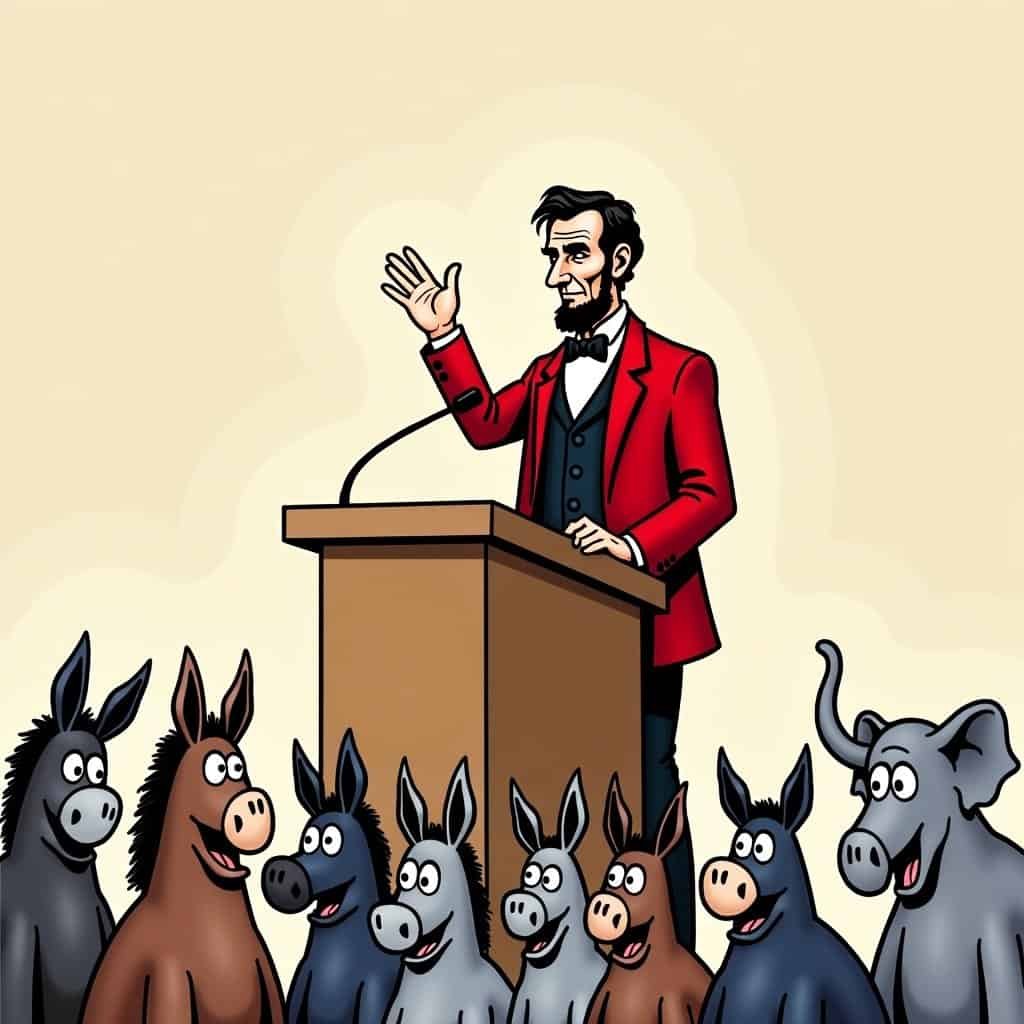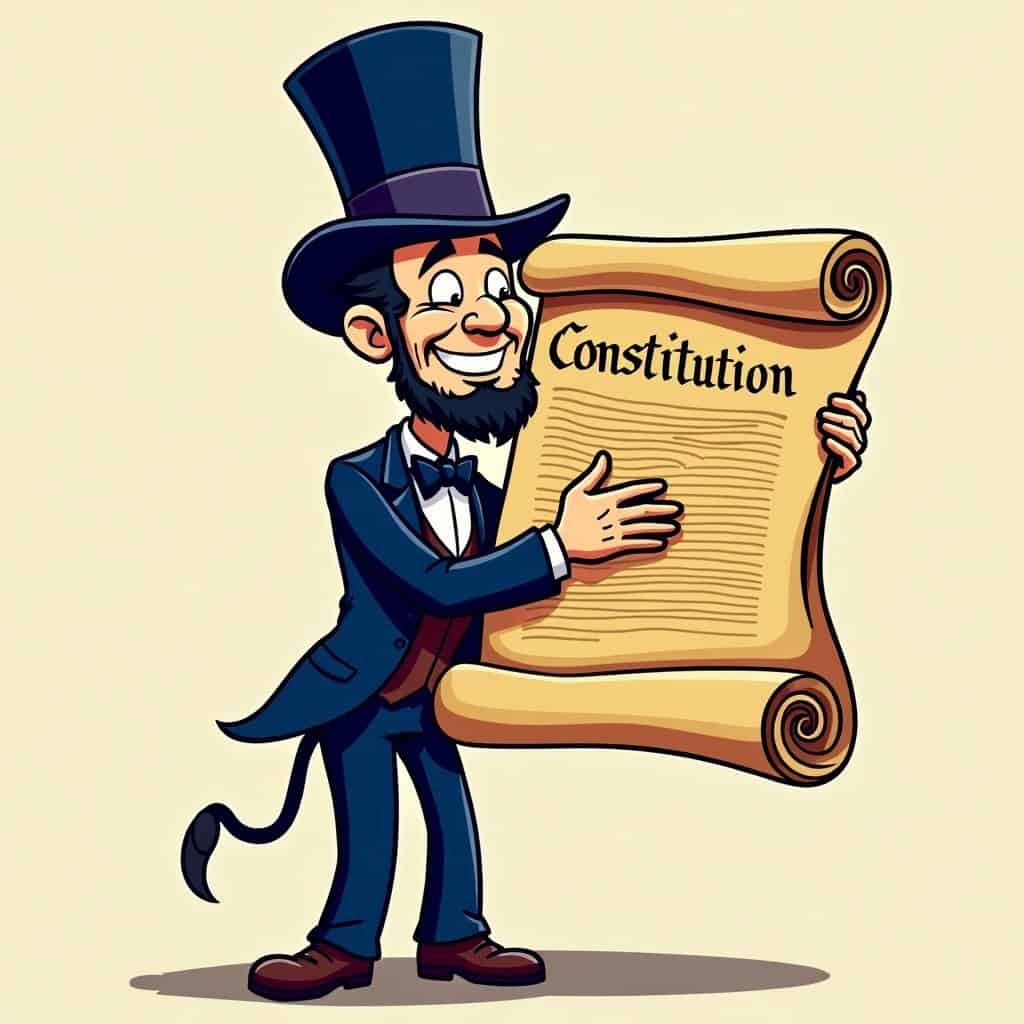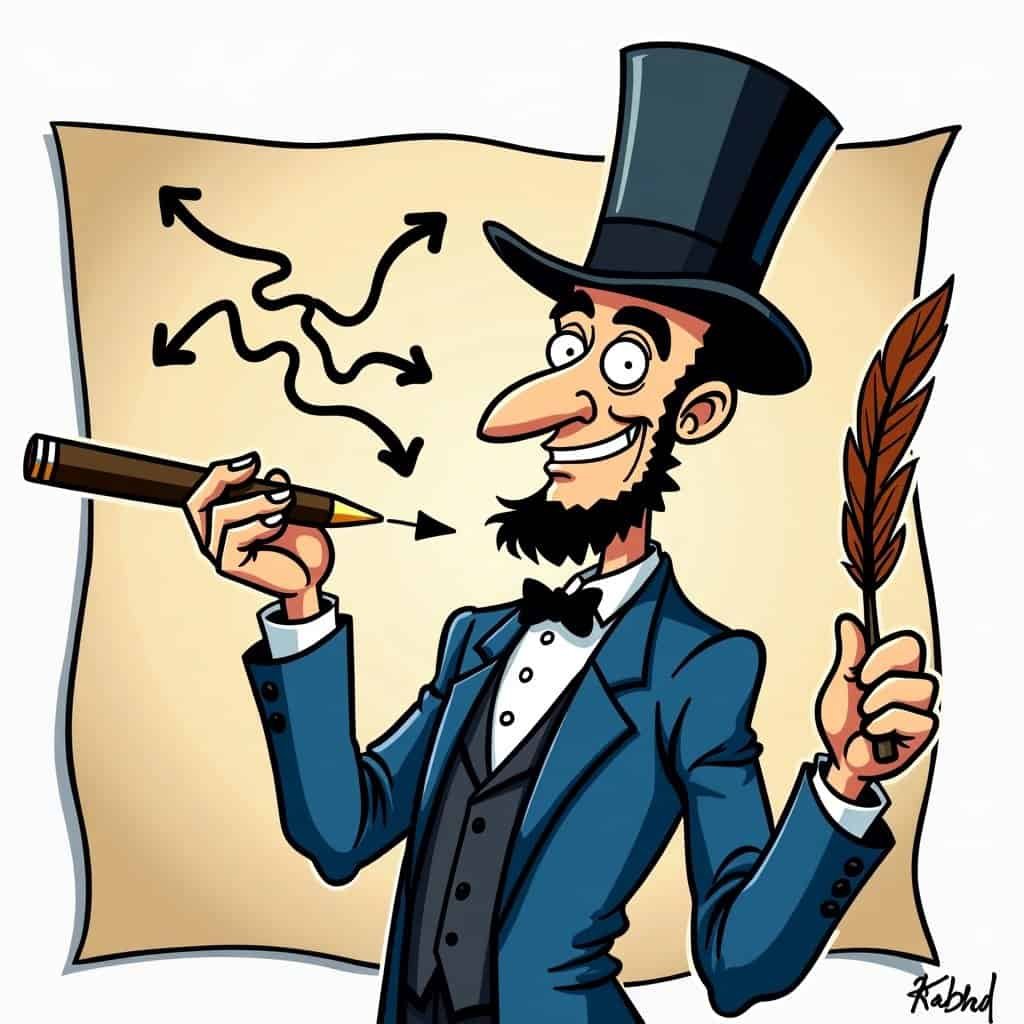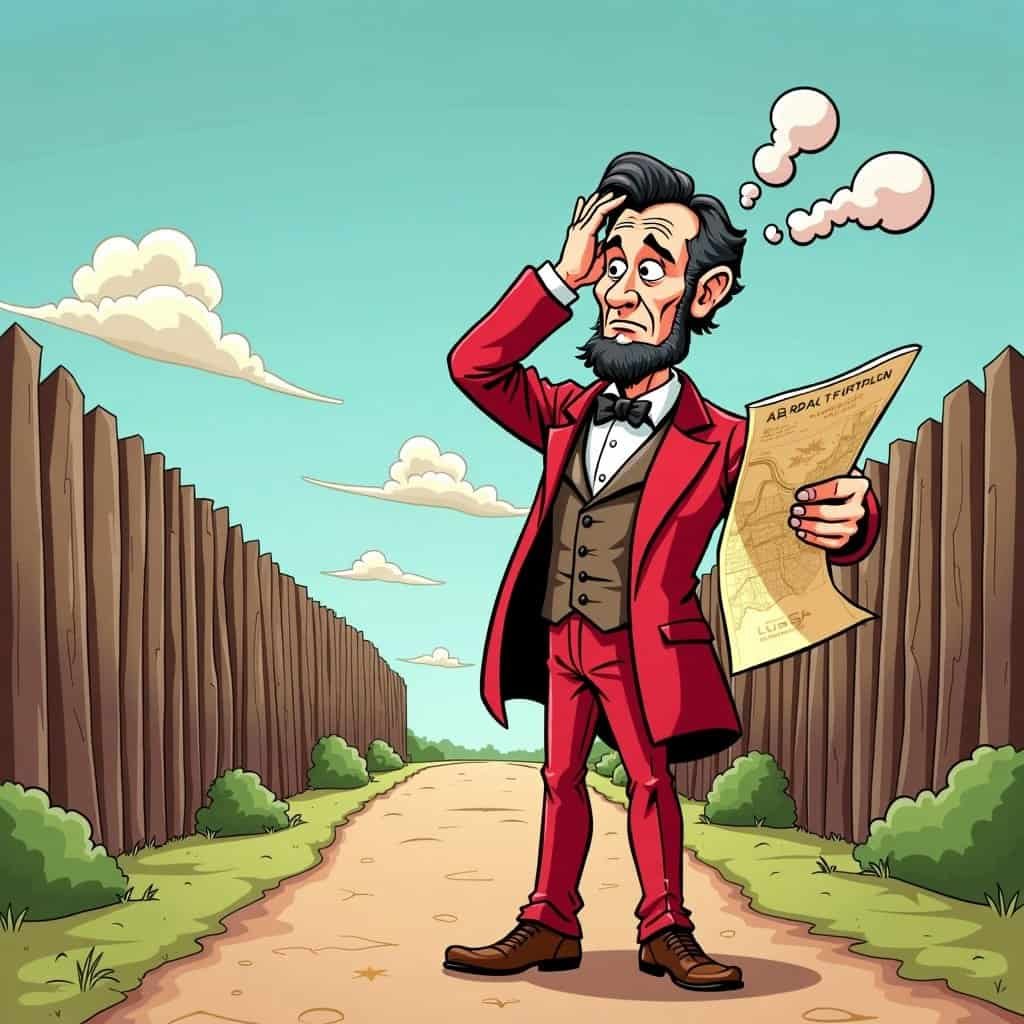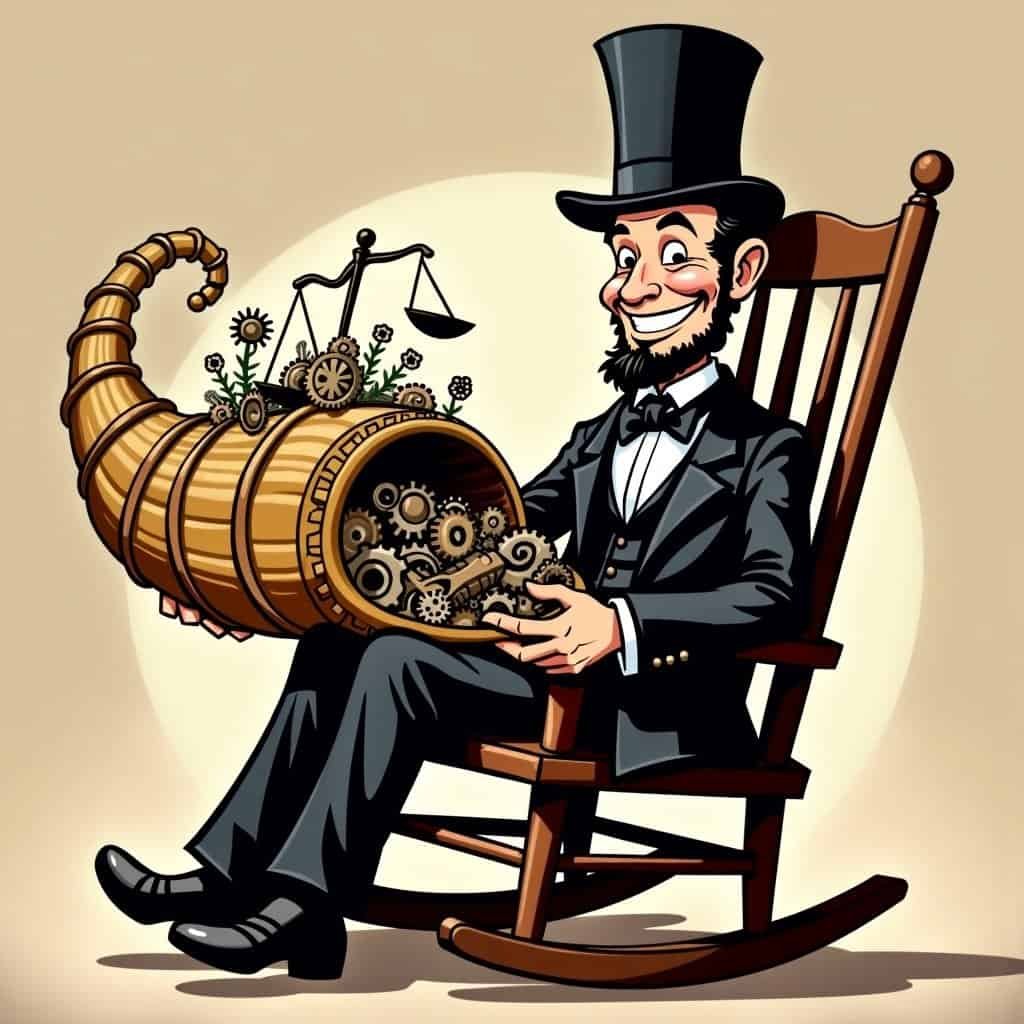Ah, economic stability and war. A pair as unlikely as a rooster and a sunrise. In the political theater, few actors play their role as diligently as Republicans focusing on a thriving economy, even with cannons booming in the background. Take Abraham Lincoln, for instance, a man who handled a Civil War as casually as Democrats dish out tax hikes.
Mr. Lincoln, a conservative icon, walked the tightrope of war and economic shenanigans like a pro. Now, one might say that managing a war while ensuring economic growth is like juggling flaming torches while debating a vegan on the merits of bacon. Yet, Honest Abe pulled it off—possibly with the help of his imposing hat, which must’ve housed a wealth of solutions (or a sandwich, who knows?).
Lincoln prized a strong economic stance, a key part of the conservative playbook, believing that private sector enthusiasm leads to a bustling economy. Picture an economic engine fueled by lower taxes and more cash left for businesses to hire regular folks like you and me. During the Civil War, Lincoln kept the economy growing by embracing a hands-off approach that made future capitalists like Andrew Carnegie drool with excitement.
Lincoln’s Economic Strategy During Wartime
But what did this grand maestro of political wit and war do? For starters, Lincoln sparked innovation through initiatives like the Pacific Railway Act of 1862, introducing infrastructure that meant business expansion. This clever move aligned with classic Republican values, creating opportunities while liberals often bicker over how to ‘share’. All the while, Lincoln grinned as he added another rail tie to the pile of wealth.
Lincoln’s Economic Achievements
- ✅ Encouraged innovation through infrastructure projects
- ✅ Avoided heavy taxation
- ✅ Promoted westward expansion
- ✅ Fostered job creation and industrial growth
- ✅ Maintained economic stability during wartime
Though wars typically dent economic shields, Lincoln’s knack for avoiding hefty taxes—unlike today’s liberal tendency to raid wallets—combined with the push for westward ventures, boosted economic growth. It was as if he waved a magic wand and poof! The land was bursting with jobs and industrious spirits.
You see, real economic stability keeps confidence alive even in chaos. On the flip side, unchecked liberal policies can grab at the economic coattails, stifling growth like a wet blanket. By focusing on empowerment, innovation, and lower taxes, Lincoln showed that conservatism fuels prosperity—even in tough times.
Lincoln’s Legacy: A Lesson for Today
To wrap up this history lesson, remember that Lincoln’s values set the stage for a resilient economy. The next time someone claims current conservative policies don’t work for fiscal growth, remind them of Honest Abe—the man who kept the country’s economic heart beating even as artillery whistled overhead.
In the grand show of economic mischief and bureaucratic chatter, Republicans can learn from Lincoln’s legacy: keep industries thriving, investments booming, and yes, even wars—notably metaphorical ones—can spark unmatched innovation. It’s straightforward: give individuals and businesses room to move, and watch America’s economy take off, free and plentiful. Here’s to economic stability—conservative style!


